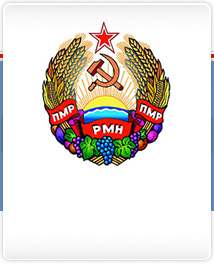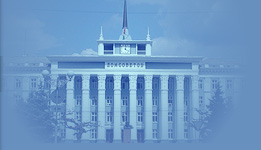The system of education
The system of education of the Pridnestrovian Moldavian Republic includes preschool, secondary, further and vocational education, also further training. The single educational zone with CIS countries, the orientation towards educational standards of Russia considering local peculiarities are the priorities in development of the educational system. Educational institutions are supported by the state (10-12% of the state budget a year)
Preschool education is represented by 195 nursery schools (in 2000). About 22 500 children go there (43% of the total number of children under the school age). But the demographic crises led to a considerable reduction in the number of kindergartens (by 95 entities as compared with 1992) and the number of children (by 20 000). The number of departmental kindergartens also reduced. 90% of children are taught in Russian, the others – in Moldavian and Ukrainian. 1,500 children (7%) study the first grade program. Some private nursery schools were also established. The number of educators was 2 900 in 1999.
There are 183 compulsory educational institutions of different kinds and types (in 1990 – 198), 92 thousand pupils study there (in 1990 – 104, 7 thousand). Secondary schools predominate in the system of compulsory educational institutions. Primary and secondary schools function in small villages of the republic. The total number of pupils in schools fluctuates from 10-20 (in villages Novomihailovka and Kolbasna) to 2000 (secondary schools -12, 14 in Tiraspol, -19 in Bendery, -10 in Rybnitsa). Some schools use educational specialized and advanced programs. They are 6 high schools and 4 Lyceums (6, 4 thousand pupils). There are also 4 private high schools (300 pupils) and 6 private secondary schools where pupils are taught in Romanian (4,3 thousand pupils). In Pridnestrovie there are 5 boarding schools for mentally retarded or handicapped children (880 pupils) and 2 boarding schools for deaf children (330 pupils). Children are taught in three languages, in 133 schools – in Russian, in 33 schools – in Moldavian, in 14 schools –both in Russian and Moldavian, in 2 schools – in Ukrainian, in 1 school – both in Russian and Ukrainian. 82% of pupils are taught in Russian, 13, 5% - in Moldavian, 3, 8% - in Romanian, 0, 7% - in Ukrainian. The total number of state school teachers is 6 800. 4 400 of them work in cities, 2 400 – in villages. 3% of teachers have the highest teaching degree; over 30% of teachers have the first teaching degree.
Nowadays the system of education is characterized with the reduction in the number of pupils, especially in primary schools in connection with the demographic situation; the decrease in number of primary and incomplete secondary schools as well the growth in number of secondary schools and private educational institutions.
There are 67 extra-educational institutions in the region (24 700 children are engaged), including 8 arts centers (10 000 children), 7 centers of young technicians and naturalists (2 700 children), 31 sports schools (11 000 children), 26 arts and musical schools (6 000). In 1999 4 700 children had a rest in health camps in Dubossary district and Bendery.
There are 7orphans’ homes, including 5 family orphans’ homes (over 200 children).
In December 1998 the conception on reforming the republican educational system was adopted. It proclaimed the positive conservatism, improvement of the educational level, employing highly skilled teachers, methodologists and authorities, the efficient use of budgetary resources to be the main points of the reform. The state program “Textbook” was adopted with a view to buy textbooks for schools where pupils are taught in Russian and Ukrainian, to work out and publish textbooks for schools where pupils are taught in Moldavian. Agreements on cooperation with Russian and Ukrainian publishing houses were concluded. State programs “Orphan children”, “Education in the Ukrainian language”, “Education in the Moldavian language”, “The quality of education”, “State educational standards” with a view to reform the system of education were elaborated and adopted by the government.
Further education
Further educational institutions are represented with two higher educational institutions, 16 secondary vocational schools and 9 primary vocational schools. They are supported by the republican budget and local funds.
Primary vocational schools are represented with 8 Lyceums and a college. 2800 students study there. They are trained in 23 specialties (39% of them specialize in construction, 25%- in industry, 21% - in agriculture, 10% - in trading and public catering and 5%- in consumer service).
Secondary vocational schools are represented with 7 technical colleges, 2 sovkhoz- technical college, 2 trade schools and 6 colleges. 10 700 students are trained there in 59 specialties. Main training lines are agriculture (21% of students), industry (20% of students), public health (17%), economy and law (16%), education (9%).
46 per cent and 51 per cent of primary and secondary vocational school leavers were given work places in 1999. About ј of them were called up for military service.
There two higher educational institutions in our republic –Pridnestrovian State University named after Shevchenko T.G. (PSU) and Pridnestrovian higher musical college named after Rubinshtein A.
Pridnestrovian State University named after Shevchenko T.G. is a large educational and scientific center with 76 chambers and 13 faculties. A scientific and methodological center and a center of remote education of Moscow State University of economics, statistics and informatics, a filiation of Russian Academy of Natural Science, a computing center, an agrarian-biological center, preparatory department, a cultural center of young people “Sputnik”, a library (over 850 000 books) function at the university. The students are trained in 50 specialties for providing the region with qualified staff. 8 900 students studied there at the end of 1999, including 550 students of the engineering-pedagogical faculty in Rybnitsa. Students are taught in Russian (90, 5%), in Moldavian (8, 7%) and Ukrainian (0, 8%). 32 Doctors in science, Professors, 119 Masters in science, 234 senior lecturers teach there. In 1999 1400 specialists graduated from the university. The university is the member of Eurasian Association of classic universities, the Association of Russian higher educational institutions “Assistance to higher educational institutions” at the Ministry of Education of the Russian Federation.
Filiations of higher educational institutions of Russia (Moscow Academy of economics and law, Moscow Institute of entrepreneurship and law in Tiraspol and St. Petersburg Polytechnic Institute in Rybnitsa) function in the republic. 1100 students study there.




